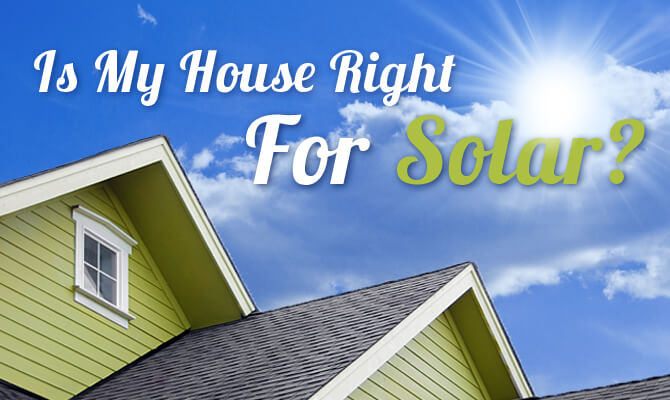 Solar energy is a clean, renewable way to power modern homes. Solar energy systems are kind to the environment and to your wallet and they offer amazing benefits. If you’re considering solar power for your home, you must first determine if your home is right for solar. Here are some things to consider when deciding if solar makes sense for your home.
Solar energy is a clean, renewable way to power modern homes. Solar energy systems are kind to the environment and to your wallet and they offer amazing benefits. If you’re considering solar power for your home, you must first determine if your home is right for solar. Here are some things to consider when deciding if solar makes sense for your home.
Sunshine on a Cloudy Day
Many people believe you must live in an area with a lot of sun exposure to use solar energy. The truth is that plenty of the sun’s energy makes its way through clouds. In fact, you can produce comparable amounts of solar energy in very overcast climates and in cloudless deserts.
Orientation Matters
The direction that your roof faces can affect the efficiency of your solar panels. A south-facing roof is ideal because it lays directly in the suns path from east to west, but southeast and southwest facing roofs can also be well suited to solar. Roofs that face east or west may be suited to solar, especially if they get plenty of unobstructed sunlight each day. If you’re not sure which direction your roof faces, one easy way to check is with Google Maps!
Light Obstructions & Non-Roof Solar Options
Another critical factor in determining whether your home is well-suited to solar is whether or not your roof enjoys direct sunlight exposure. Is your roof shaded by trees? Is your light blocked by surrounding buildings or tall structures? Light obstruction may indicate that your roof isn’t an ideal candidate for solar, but before throwing in the towel, see if you can remove the obstruction.
If you don’t think your roof is a good candidate for solar, either because of orientation or light obstruction, consider your home’s external structures. Perhaps your garage or shed is situated perfectly, or you have an open area of the yard where solar panels can be mounted on the ground. Don’t give up on solar until a professional installer has explored your options with you.
The Condition of Your Roof
Once you determine that your home is right for solar, it’s time to look at your roof. Solar systems can last anywhere from 25 to 40 years, so an aging roof is not the best candidate. You don’t want your panels to outlive your roof. Your roofing materials also matter as slate and clay tile roofs can break during installation. Traditional shingles work great, as do cement tile, wood shake, metal, and tar roofing.
When installing solar panels, roof incline is also important. Anything more than 40 degrees will impede the performance of your solar panels and anything under 15 degrees will prevent your panels from self-cleaning. You can still mount solar panels on a flat roof. They can either tilt the panels or keep them flat, which will require a little maintenance to keep them clear and efficient.
Still Not Sure?
We can help. A solar energy professional can visit your home and assess your exact conditions to determine your home’s compatibility with solar. To learn more about using solar energy or to schedule a FREE solar assessment, contact Wattson Home Solutions today!








